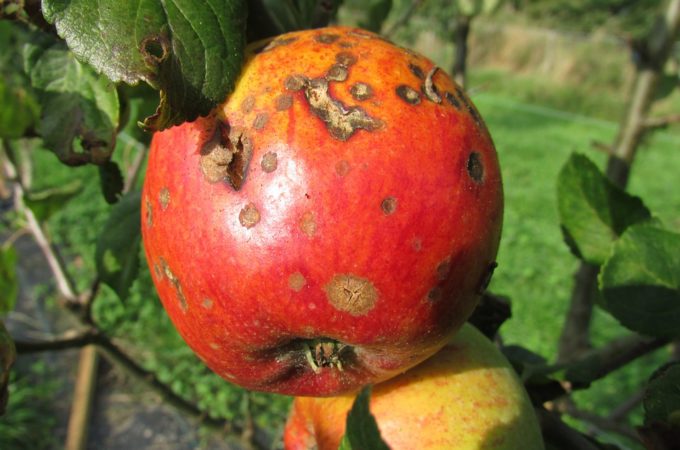Systemic corruption is nothing new. The Protestant Reformation is rooted in Martin Luther’s identification of corruption in his own religious community. In 1520 he wrote:
I have come to see that they [indulgences] are nothing but a fraud of the Roman flatterers by which they rob people of their faith and fortunes. Indulgences are a swindler’s trick of the Roman flatterers.[1]
In many societies, corruption is a way of life, so woven into the fabric of the culture people hardly think about it. “What’s the big deal about corruption?” they might ask.
 But it is a big deal. It sabotages the progress of individuals, families, communities and nations. Whether at the highest levels of government or every day transactions between common persons, corruption always undercuts the progress of people. It limits and slows the development of your neighbors, your community, your nation.
But it is a big deal. It sabotages the progress of individuals, families, communities and nations. Whether at the highest levels of government or every day transactions between common persons, corruption always undercuts the progress of people. It limits and slows the development of your neighbors, your community, your nation.
Why is this? Because corruption always benefits a select few while the majority pays the cost.
Corruption especially hurts the poor. When it takes a bribe, and not just good grades and ability, to get into the university, the scale tips away from the poor.
Some have argued that corruption can be beneficial, that it is a necessary evil. To this, the Anticorruption Policy and Strategy statement of the Asian Development Bank (ADB) says,
The bulk of the evidence indicates that corrupt actions typically generate far more costs than benefits. A study of corruption in one country, for example, concluded that corruption intensified ethnic conflict, ruined the efficiency of municipal government and federal agencies, crippled the merit system of hiring and promotion, and generated an “atmosphere of distrust which pervades all levels of administration.”[2]
Corruption is not, as some claim, an unseemly but necessary solution to “grease the wheels” of an inert bureaucracy or industry. No, it puts grit in the wheels.
Corruption
- Undermines the value of work and individual merit. Why earn a doctorate degree when another person can easily purchase the same?
- Hinders legitimate business activity. How can you compete honestly in business when others gain unfair advantage through bribes?
- Endangers peoples’ safety when it results in poor construction and products and the bypassing of public safety rules.
- Shreds peoples’ support and confidence in government and public institutions.
 Corruption is the antithesis of freedom.[3] In a free economy one person produces a product and another gives money appropriate to the value of the item. However, when you are forced to pay bribes to get the electricity on, the phone to work, and the water to flow, there is no equal exchange of value. You cease being a free citizen.
Corruption is the antithesis of freedom.[3] In a free economy one person produces a product and another gives money appropriate to the value of the item. However, when you are forced to pay bribes to get the electricity on, the phone to work, and the water to flow, there is no equal exchange of value. You cease being a free citizen.
Corruption grows like a malignant cancer. One bribe leads to another. If you have to pay a bribe to get something done, why not be corrupt yourself? If everyone else is scamming the system, why shouldn’t you? If fact, you’re losing if you don’t. Dishonesty spreads like a virus. In 2016 the Asian Development Bank had a 34% increase in the number of firms and individuals it caught violating its Anticorruption Policy.[4]
Corruption works because it most often happens in secret. The average citizen does not normally see exactly who benefits and how much. Nor do they see what the cost is to themselves.
Corruption at the highest levels is often the perfect theft because most people do not see the thief in action nor do they recognize any loss to themselves. They just know that the economy is suffering or that a road did not get built correctly.
Corruption at the petty level of daily life is visible but people often view it as the price they have to pay to get what they need.
Corruption is a major issue all over the world.
What is corruption?
Here’s a standard definition of corruption: the abuse of public or private office for personal gain.
 Vishal Mangalwadi, in his book, Truth and Transformation: A Manifesto for Ailing Nations, defines it this way:
Vishal Mangalwadi, in his book, Truth and Transformation: A Manifesto for Ailing Nations, defines it this way:
Corruption involves abusing one’s power to harass, coerce, or deceive others (individuals, institutions, or the state) to acquire value (money, service, goods, ideas, time, property, or honor) without returning proportionate value to them.[5]
Corruption violates at least four principles critical to the flourishing of individuals, communities and nations. These principles are foundational because they are tied to who God made us to be as human beings and the purpose He gave us to live out.
- The human dignity principle.
Genesis 1:27 says, “So God created man in his own image, in the image of God he created him; male and female he created them.” Every person ever conceived God created in His image. This gives every person intrinsic dignity and worth in the sight of God. Job 34:19 reads, “Who shows no partiality to princes nor regards the rich above the poor, For they all are the work of His hands.” All are equal in dignity and value in the sight of God.
Corruption violates this principle because it favors one person over another. It benefits the person who has money and power over the one who does not. It robs people of their dignity and their freedom. It enslaves.
To the degree corruption violates this principle, the development of a community, society and nation will be undercut.
- Dwight Vogt
… to be continued
[1] Luther, Martin, Prelude on the Babylonian Captivity of the Church (October 1520)
[2] Asian Development Bank, Our Framework Policies and Strategies: Anticorruption, p. 16
[3] Mangalwadi, Vishal. Truth and Transformation: A Manifesto for Ailing Nations, Seattle, WA: YWAM Publishing, 2009, p. 236.
[4] Asian Development Bank, Office of Anticorruption and Integrity: Annual Report 2016 , Institutional Document, March 2017.
[5] Mangalwadi, 237
[6] Nancy Pearcey, Total Truth: Liberating Christianity from Its Cultural Captivity (Wheaton: Crossway, 2008), 47.







1 Comment
Susanne Frerichs
July 13, 2017 - 9:17 amSpot on!